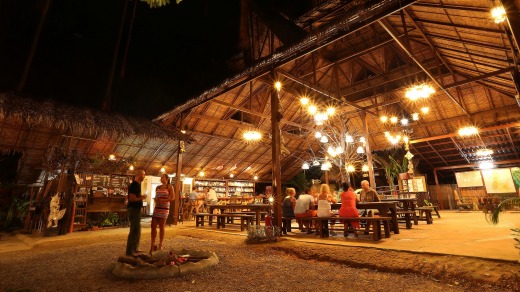 Jane Reddy
Jane Reddy
For full functionality of this site it is necessary to enable JavaScript. Here are the instructions how to enable JavaScript in your web browser.
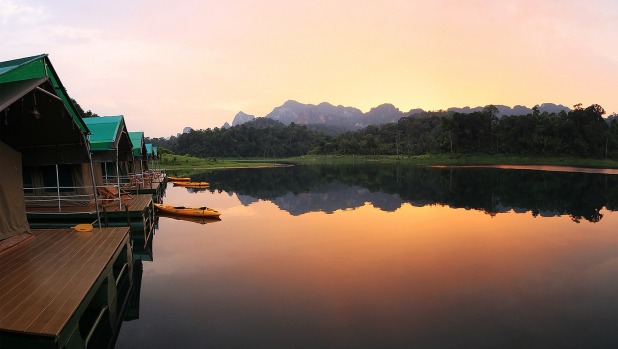
HIGHLIGHT
Unforgettable way to see elephants up close.
LOWLIGHT
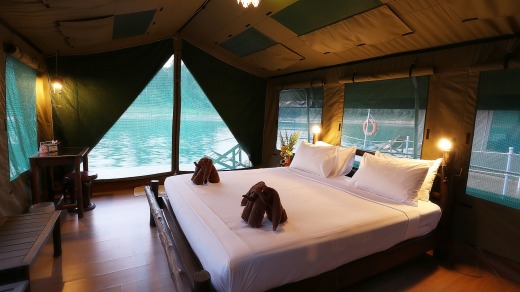
No time time to experience the floating camp.
Elephant Hills, Khao Sok, Thailand.
Set close to Khao Sok National Park, Thailand's first luxury tented camps are a serene departure from some of the overcrowded beaches. Instead, guests are flanked by limestone karst cliffs and dense jungles. The drawcard is the camp of 12 elephant cows – including the biggest Chom Poo (Rose Apple), who, despite her size, is afraid of machine noises such as cars, and baby elephant HaHa, who's turning four next month – which guests can see up close. There's no tourist riding or naff elephant shows by the elephants, which were mostly used for logging until that was banned in 1989. Elephant Hills also operates a floating Rainforest Camp of 20 tents in the centre of Cheow Lan Lake in Khao Sok National Park Rainforest Camp. The camp is a very manageable 140 kilometres from Phuket Airport and 170 kilometres from Phuket on decent roads.
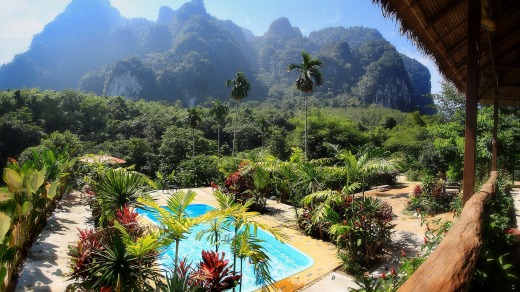
A thatched and open restaurant and bar area is buzzing with guests returning from up-close experiences with rescued elephants and a series of paths winding off to the 35 tents.
It may be a tent but this is not camping as I know it. For starters there's no sand and no mosquitoes in the airy space. Instead, there's a verandah and, inside, a wooden floor that comfortably fits a hand-carved queen bed with crisp linen. Hanging racks are fashioned from bamboo and intricate bedside tables are carved, naturally, into the shape of an elephant. The bathroom's an extension of the tent is a natural lightwell and fashioned from pieces of riverstone from beige to deep brown and set against whitewashed walls with vanity, basin, toilet and shower. Simplicity is its style. The jungle version of a gentle early-morning wake-up call at 6.10am (bom, bom, cha, cha, cha) is in full flight by 6.24am thanks to the birds and gibbons. There's no going back to sleep now.
Honest cooking of both Western and Thai dishes are served at the restaurant while the garlic skewers with galangal and turmeric and cooked over hot coals are a satisfying way to end a sweaty jungle trek.
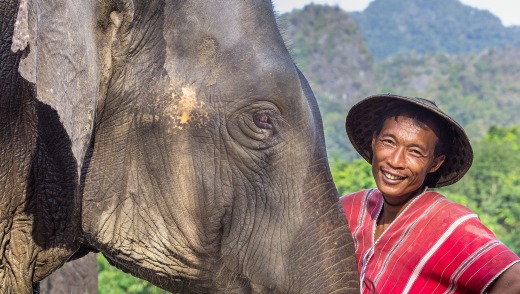
At the elephant kitchen, a short bus ride away, five elephants, their fuschia-fitted mahouts on, top plod towards us. We've used machetes to chop banana, bana grass (elephant grass), sugar cane and pineapple that's grown on site or bought from local farmers into elephant bite-size pieces before feeding them a portion of the total 250 kilograms they will consume every day. After dinner, and supervised by the mahouts, we wash and scrub them with coconut husks. They seem to enjoy the attention. We also spend time with HaHa. While behind a wooden fence we are able to feed bananas and he checks out the guests over the fence with his trunk. The space of 1.6 hectares has a free-roaming area including an elephant pool and scratching trees. While the elephants are chained at night, the camp is aiming to become the first chain-free camp in Thailand within the next few months.
Comfort and nature are not necessarily happy bedfellows but Elephant Hills has managed both with a truly immersive experience with the elephants.
A one-night jungle safari starts at $445 a person and includes elephant experience, canoe trip on the Sok River, a cooking demonstration and guided jungle trekking and transfers from southern Thailand including Phuket, Krabi and Koh Samui. See www.elephanthills.com.
